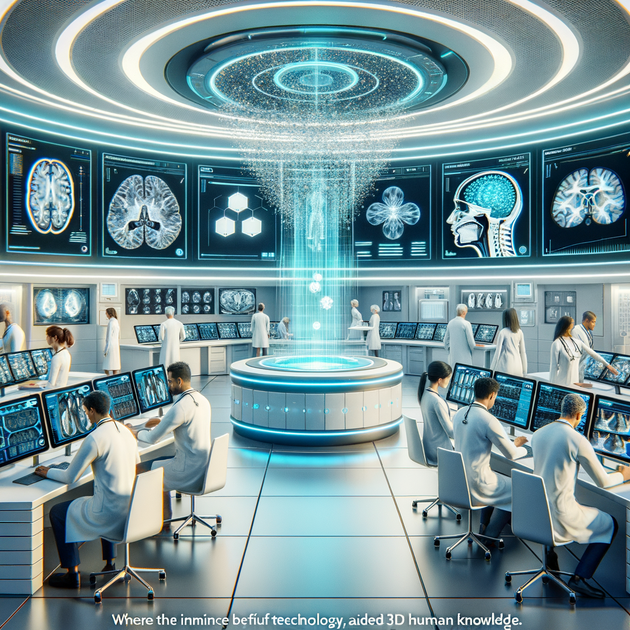How AI is Transforming Radiology: A Collaboration Between Microsoft and Medical Institutions
Imagine a world where diagnosing a complex medical condition is as efficient and accurate as running a software program. Today, this is becoming more of a reality thanks to **AI in healthcare**. Microsoft, a pioneer in technology, is breaking new ground in radiology through a groundbreaking collaboration with leading medical institutions. This alliance promises to revolutionize how radiologists work, potentially saving thousands of lives.

The Vision Behind the Collaboration
Microsoft is not new to healthcare innovations. Teaming up with Mass General Brigham, the University of Wisconsin School of Medicine and Public Health, and UW Health, the tech giant aims to advance **AI models for radiology**. This visionary partnership aims to enhance radiologists’ experiences and deliver better patient outcomes through sophisticated multimodal AI foundation models and medical imaging copilot applications.
Building on a Robust AI Infrastructure
The development of these AI models is built on the robust **Microsoft Azure AI platform**. This foundation brings together powerful cloud computing capabilities and machine learning algorithms, integrated seamlessly with Nuance’s Powerscribe radiology reporting platform and Precision Imaging Network, which are already widely used by U.S. radiologists.
Addressing Healthcare Challenges with AI
The healthcare sector faces escalating costs, clinician burnout, and staffing shortages. These issues compound the need for accurate, consistent medical imaging. Here’s where **Generative AI (GenAI)** comes in. GenAI has the potential to flatten traditional barriers in AI product development, accelerating their impact on clinical care.
Keith J. Dreyer, D.O., Ph.D., chief data science officer at Mass General Brigham, emphasizes the importance of this innovation: “**Generative AI** has transformative potential to overcome traditional barriers in AI product development and to accelerate the impact of these technologies on clinical care. As healthcare leaders, we need to carefully and responsibly develop and evaluate such tools to ensure high-quality care is in no way compromised.”
This vision extends beyond mere automation. By fine-tuning foundation models on vast multimodal longitudinal data assets, AI can automate the segmentation of organs and abnormalities in medical imaging, significantly boosting radiologists’ consistency and efficiency.

Innovating at the Intersection of Healthcare and Technology
Microsoft’s collaboration with these medical institutions comes at a fortuitous time. The healthcare industry is witnessing rapid advancements with Generative AI technologies. Consider **DeepMind’s AlphaFold**, which has made significant strides in predicting protein structures, pivotal for understanding biological processes and disease mechanisms.
Case Study: Leveraging GenAI for Oncology
A prime example is Tempus Labs, which leverages GenAI to transform oncology through its advanced data-driven solutions. By integrating sophisticated AI algorithms with clinical and genomic data, Tempus Labs aims to enhance cancer diagnosis and treatment.
Ethical Considerations in AI Development
As AI technologies further infiltrate the healthcare sector, the responsibility to uphold patient privacy and adhere to ethical guidelines becomes even more crucial. Microsoft remains committed to protecting patient privacy and adhering to its Responsible AI Principles to ensure their AI systems are developed and deployed with unmatched integrity and transparency.
This unwavering commitment ensures that the transformative power of AI is harnessed responsibly, offering state-of-the-art care while safeguarding essential ethical standards.
The Road Ahead: AI’s Increasing Impact on Healthcare
As we witness the dawn of AI-driven healthcare, the implications are transformative. From improving diagnostic accuracy to alleviating physician burnout, AI’s potential is vast. However, responsible development and deployment are paramount to ensuring these technologies truly benefit humanity.
What do you think? How will AI change the future of healthcare, and what ethical considerations should we prioritize? Share your thoughts in the comments below!
